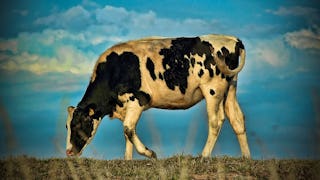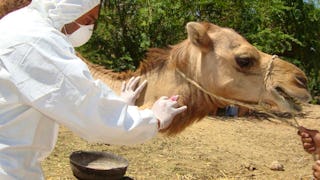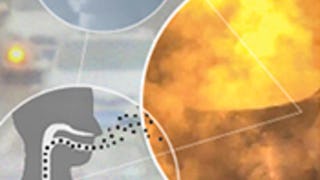The globalization of trade and human movement, the expansion of political and economic uncertainty, the speed, scale and nature of predicted global growth, and a wide range of public health issues, have raised concerns regarding the sustainability and security of animal-source food production systems around the world. Animal disease in farmed livestock is important with regard to food safety, animal welfare, and in view of the economic importance of animal-source food production in many countries.



Respiratory Disease Control and Sustainable Livestock Production


Instructors: Dr. Jim Lowe, DVM, MS, Dip ABVP (Food Animal)
Included with 
What you'll learn
Adopt a host-centric approach to managing infectious respiratory disease in livestock
Understand the contribution of host structure and function in respiratory health and disease
Apply an understanding of host physiology in identifying, localizing and quantifying respiratory disease in livestock
Appreciate the structural and functional features of microbes that determine their disease producing capability (virulence) in the respiratory system
Skills you'll gain
Details to know

Add to your LinkedIn profile
August 2025
5 assignments
See how employees at top companies are mastering in-demand skills

There are 5 modules in this course
You will become familiar with the course, your classmates, and our learning environment. The orientation will also help you obtain the technical skills required for the course.
What's included
1 video4 readings1 assignment1 discussion prompt
In this first week of the course, we will explore how using a host-centric view of a disease can lead to a greater understanding of respiratory disease in livestock production systems. Lessons this week will provide an overview of all of the key concepts that will be covered in the course to help you understand how each of the aspects of respiratory disease management is interrelated. By the end of the week, you will have a high-level understanding of the knowledge, skills and thought processes needed to successfully manage respiratory disease.
What's included
9 videos1 assignment1 discussion prompt
This week we will explore the normal function of the lung in a healthy animal. We will use this understanding of normal as a foundation for all of the pathology and disease that we will talk about in the remainder of the course. Subjects covered this week will include: air movement physics, gas exchange, control of the respiratory system, and host defenses in the respiratory tract. We will review both anatomy, physiology and immunology of each of these key processes.
What's included
15 videos1 assignment1 peer review1 discussion prompt
This week we will explore the pathogens involved in respiratory disease of livestock. By the end of the week you will understand how pathogens interact to create a disease complex, how pathogens cause disease, how cell tropisms affects clinical signs, what pathogens infect the upper and lower airways and what tools we have to understand what pathogens are present. In addition to the main lectures, there are supplemental materials to explore the specifics of important diseases in cattle and swine and resources to help you understand diagnostic assays and sample collection techniques.
What's included
14 videos1 assignment1 peer review1 discussion prompt
In this week of the course, we delve into the therapeutic management of infectious respiratory disease, with a focus on how antimicrobial selection is informed by pharmacokinetic and pharmacodynamic principles. We will examine the critical role of host immune status and tissue pathology in determining treatment outcomes, and consider how management strategies can support host defenses and promote recovery. Through lectures and applied case discussions, you’ll gain practical tools for selecting and using therapeutics effectively in both individual and population-level contexts.
What's included
11 videos1 assignment1 peer review1 discussion prompt
Earn a career certificate
Add this credential to your LinkedIn profile, resume, or CV. Share it on social media and in your performance review.
Instructors


Offered by
Explore more from Animal Health
 Status: Preview
Status: PreviewUniversity of Illinois Urbana-Champaign
 Status: Preview
Status: PreviewUniversity of Pennsylvania
 Status: Preview
Status: PreviewUniversity of Geneva
 Status: Preview
Status: PreviewUniversity of Copenhagen
Why people choose Coursera for their career





Open new doors with Coursera Plus
Unlimited access to 10,000+ world-class courses, hands-on projects, and job-ready certificate programs - all included in your subscription
Advance your career with an online degree
Earn a degree from world-class universities - 100% online
Join over 3,400 global companies that choose Coursera for Business
Upskill your employees to excel in the digital economy
Frequently asked questions
To access the course materials, assignments and to earn a Certificate, you will need to purchase the Certificate experience when you enroll in a course. You can try a Free Trial instead, or apply for Financial Aid. The course may offer 'Full Course, No Certificate' instead. This option lets you see all course materials, submit required assessments, and get a final grade. This also means that you will not be able to purchase a Certificate experience.
When you purchase a Certificate you get access to all course materials, including graded assignments. Upon completing the course, your electronic Certificate will be added to your Accomplishments page - from there, you can print your Certificate or add it to your LinkedIn profile.
You will be eligible for a full refund until two weeks after your payment date, or (for courses that have just launched) until two weeks after the first session of the course begins, whichever is later. You cannot receive a refund once you’ve earned a Course Certificate, even if you complete the course within the two-week refund period. See our full refund policy.
More questions
Financial aid available,

